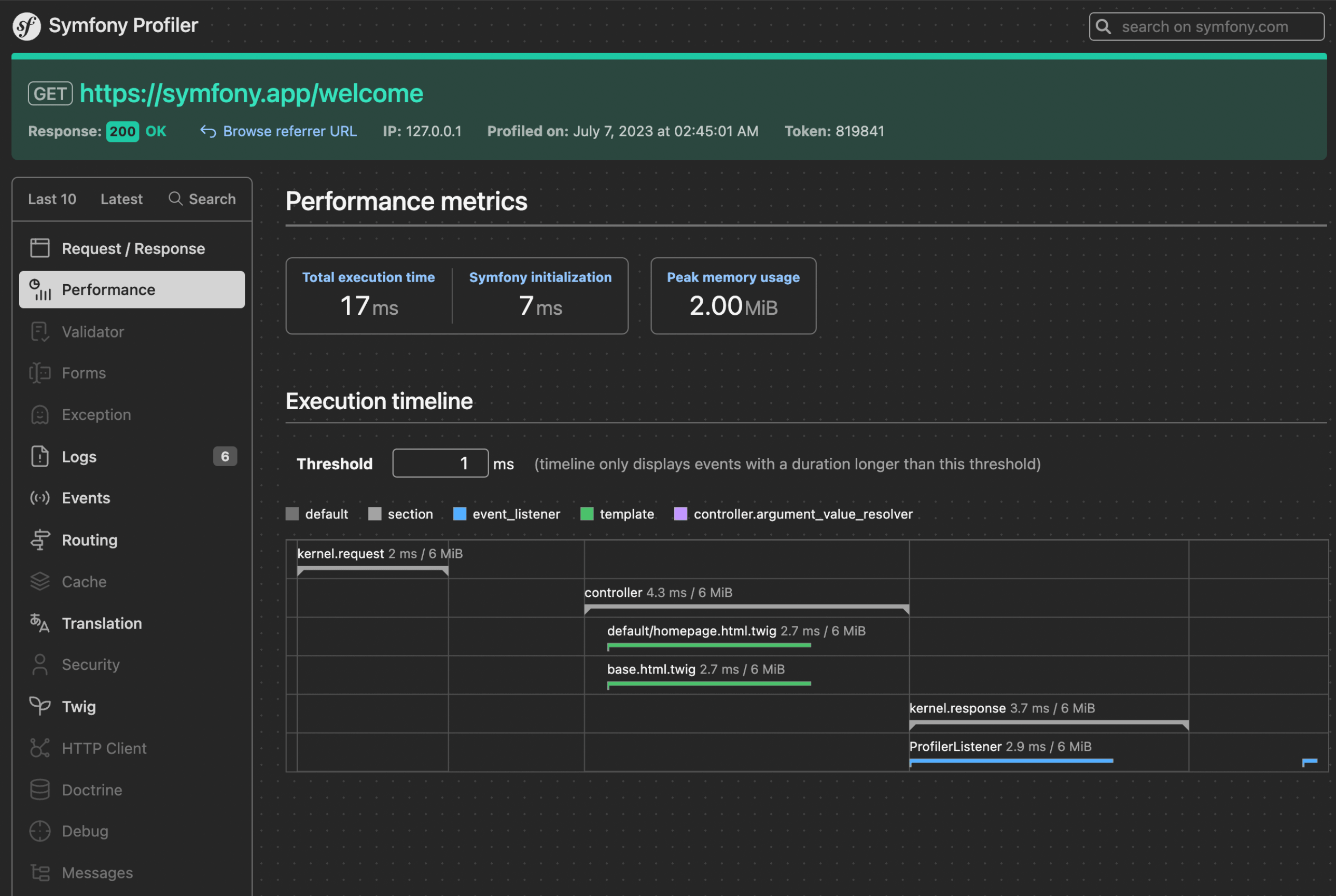Symfony
Symfony is a collection of PHP Components, a Web Application framework, a philosophy, and a community that work together seamlessly. It’s the premier PHP framework for building websites and web applications, built on the foundation of Symfony Components—independent, reusable elements used in top PHP applications like Drupal, phpBB, and eZ Publish.
With over 600,000 developers from more than 120 countries, Symfony’s community is dedicated to pushing PHP’s capabilities further, championing professionalism, best practices, standardization, and interoperability.
ad

Reasons to Use Symfony
Reputation
Since its debut in 2005, Symfony has become a trusted and internationally recognized environment. The number of references has significantly increased, supported by an active community of developers, integrators, and contributors who continually enhance the tool.
ad
Permanence
Originally created by SensioLabs, Symfony was designed by professionals for professionals, addressing real-world requirements. Long-term support and professional assistance are available from SensioLabs, complemented by a robust ecosystem that includes community platforms (e.g., Slack, Stack Overflow) and service companies investing in Symfony’s development.
References
Symfony powers a variety of applications, from intranets to major public sites, social networks, community portals, and workflow management tools. Notable examples include Yahoo!, Dailymotion, Opensky.com, Exercise.com, as well as Drupal and phpBB.
Innovation
Symfony offers the flexibility, speed, and reusable components expected from a framework, underpinned by best practices. SensioLabs and the Symfony community foster innovation, pursuing productivity and excellence through tools like the “web debug toolbar,” inspired by other frameworks across programming languages.
Resources
Symfony ensures you’re never “alone with your screen.” With community support (mailing lists, IRC) and company resources (consulting, training), answers are readily available. Symfony’s thorough documentation, based on the philosophy that “an undocumented line is a line that doesn’t exist,” provides comprehensive support throughout your development process.
Interoperability
Symfony is designed to prevent vendor lock-in, allowing you to create applications tailored to your needs. It adheres to PHP’s established standards, like PHPUnit and naming conventions, and enables you to integrate individual components (e.g., dependency injection, translation, form management) without fully committing to the framework.

FAQ’s
What is Symfony, and what does it offer to PHP developers?
Symfony is a versatile PHP framework and a suite of reusable components designed for web application development. It also represents a philosophy and a global community focused on elevating PHP standards. With over 600,000 developers, Symfony provides a robust foundation for applications, offering speed, flexibility, and high interoperability with top applications like Drupal and phpBB.
Why is Symfony considered a reliable choice in the PHP community?
Symfony has earned a strong reputation since its launch in 2005. Known for stability and innovation, it has become a trusted choice among developers and enterprises worldwide. Its well-documented components, frequent updates, and an active community contribute to its recognition as a leading framework for PHP applications.
What types of applications can be built using Symfony?
Symfony is highly versatile and suitable for a broad range of applications. It powers intranets, public websites, social platforms, community sites, and management tools. Major sites like Yahoo!, Dailymotion, and platforms like phpBB and Drupal utilize Symfony components to manage everything from user engagement to workflows.
How does Symfony encourage innovation and productivity?
Symfony focuses on innovation with features like reusable components, a robust structure, and best practices that make coding more efficient. Tools like the “web debug toolbar” exemplify its commitment to developer productivity and are inspired by frameworks across various languages.
Is there community support available for Symfony?
Yes, Symfony has a very active community and extensive support resources. Developers can access community forums, mailing lists, IRC channels, and platforms like Slack and Stack Overflow. Additionally, SensioLabs offers consulting, training, and professional support, ensuring that developers can find the help they need.
Can I use Symfony components independently?
Absolutely. Symfony is designed to prevent vendor lock-in, allowing you to use specific components like dependency injection, translation management, or form management without adopting the entire framework. This flexibility enables developers to create tailored solutions that meet their unique needs.
Who maintains Symfony, and how is its stability ensured?
Symfony was initially developed by SensioLabs, which continues to provide long-term support and professional guidance. Its stability is reinforced by a dedicated community of contributors and a growing ecosystem that supports continued improvement and regular updates.
How does Symfony support PHP interoperability and standards?
Symfony adheres to PHP’s established standards, including PHPUnit for testing and class naming conventions. It’s designed to integrate smoothly with other PHP tools and libraries, making it easier for developers to build applications that comply with industry standards.
Conclusion
Symfony stands out as a powerful, reliable, and versatile PHP framework that has earned a place at the forefront of web development. Its rich set of components, focus on innovation, and adherence to best practices make it ideal for building everything from simple websites to complex web applications. Backed by an active global community and supported by professional resources, Symfony not only meets developers’ needs but also fosters a culture of excellence and interoperability. Whether using the entire framework or individual components, Symfony offers the flexibility and robust foundation to create sustainable, high-quality applications.
ad


Comments are closed.